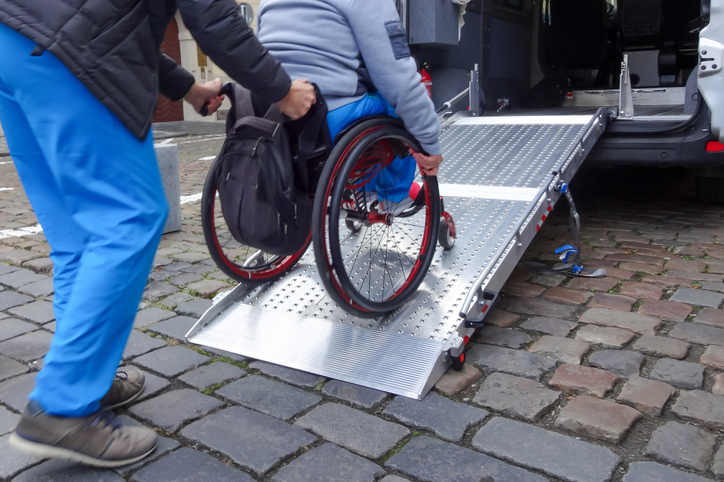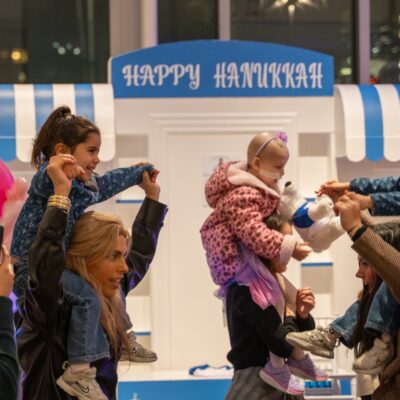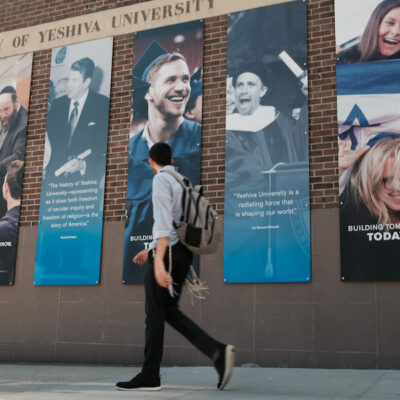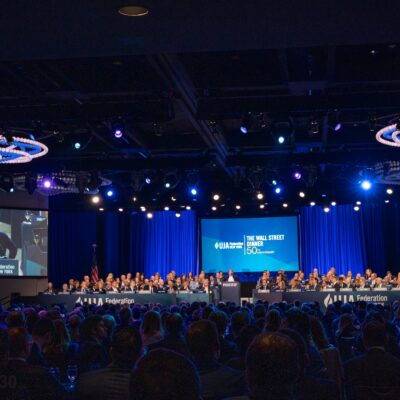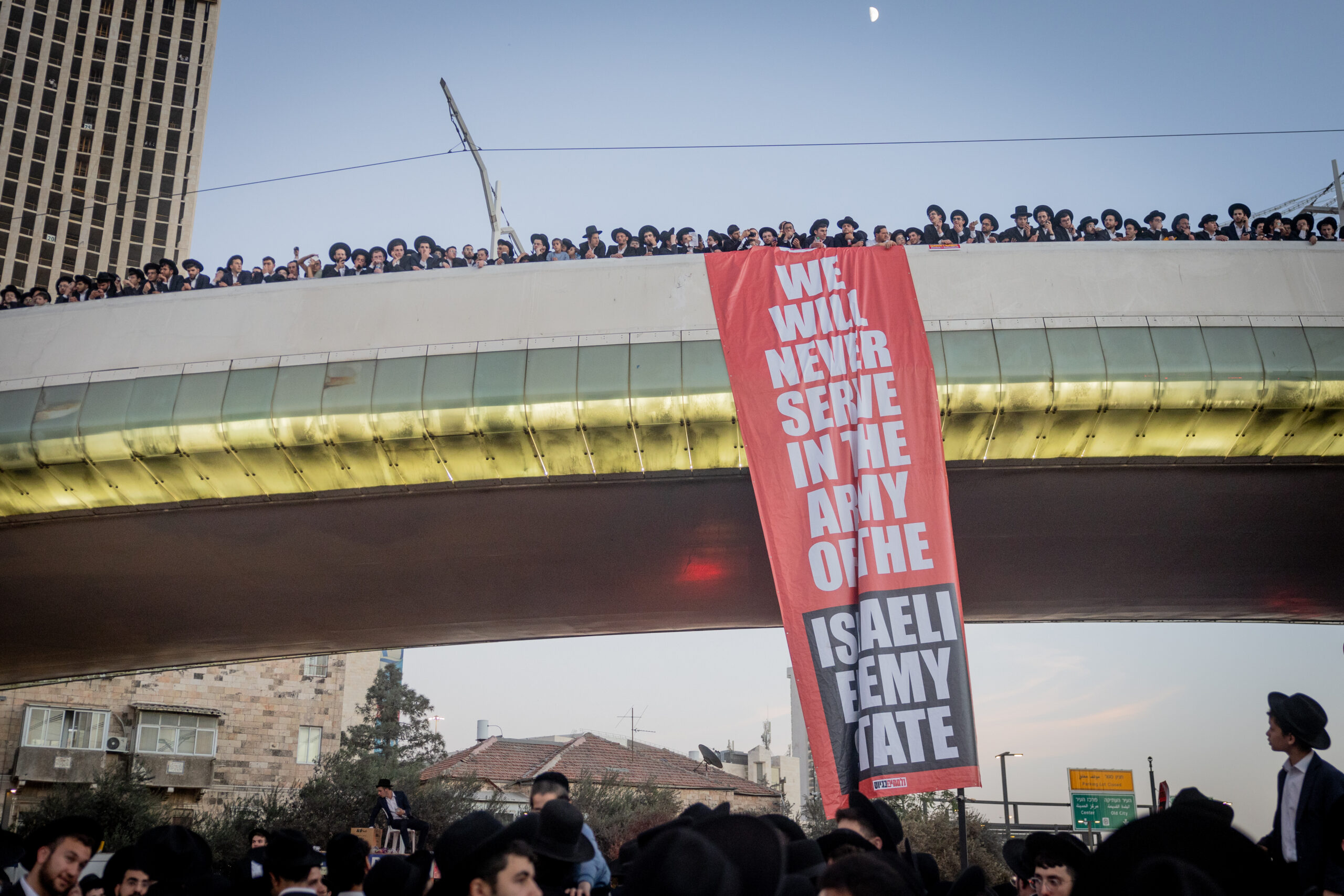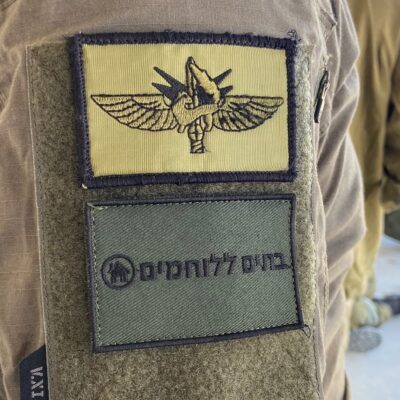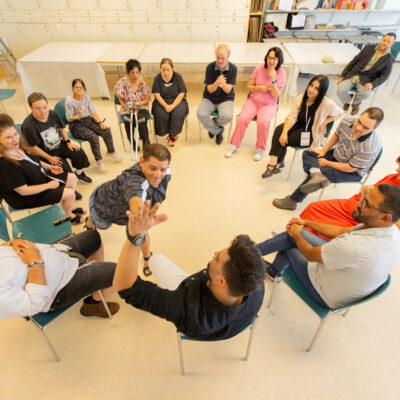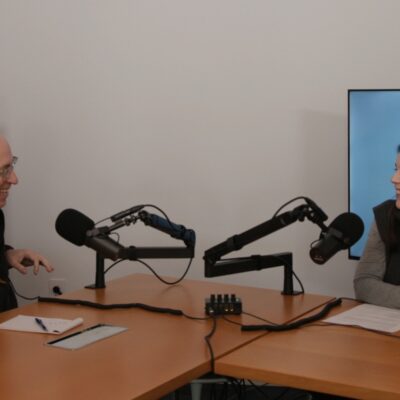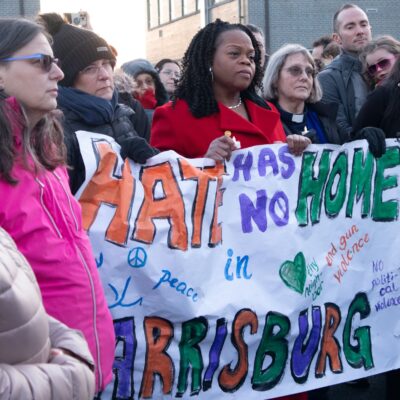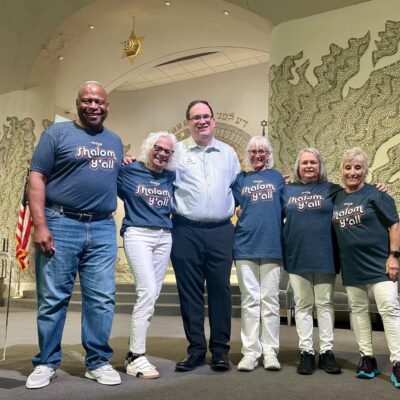Opinion
WINDS OF CHANGE
Re-imagining liberal Judaism: some reflections
In Short
What should communal leaders consider in order to plan the future and not just await its emergency
Religions have always experienced renewal, change and transformation. Over the centuries, religious movements have also encountered periods of downsizing, loss and displacement. One should not underestimate the power, place, and purpose of religion in shaping individual belief, communal practice and global values.
The creativity and vision of its leaders will be critical in reinvigorating the message and content of religious institutions and the ideas that shape religious belief and practice. As we know, outside events as well as internal conflicts redefine the religious experience.

Aviv Naveh
People take part in a dedication ceremony for a new Torah scroll for Pardes’ future home in Jerusalem, in an undated photograph.
Judaism has always had to endure and accommodate change. Adopting the Protestant idea of “denominations,” the American Jewish religious framework would employ this pattern of affiliation and identification.
In this essay, I am specifically exploring the challenges facing America’s liberal Jewish movements. For this purpose, we define “liberal Judaism” as the composite of all non-Orthodox expressions of Jewish belief and practice. As with mainline Christian religious denominations, one can identify a pattern of change in modern time, involving mergers, cross-movement relationships, downsizing and consolidation. Indeed, we can expect these trends to continue well into the future.
While our values are eternal, our institutions must be seen as transitory. We are living in an ecosystem that celebrates and promotes individualism and social media connectivity. The marketplace in this new century must be seen as fluid.
Human behavior reminds us that tastes and choices change, as the religious space serves as a reflection of these social behaviors. If competition and capitalism described the American religious model of the past, collaboration and partnerships will be the mantra for an emerging religious marketplace. Jewish community is experiencing the continued downsizing and even closure of some of our key faith institutions. These dramatic changes align with other liberal faith traditions.
The ‘what’ of a religious movement:
How best can we redefine what liberal Judaism represents? What is the value-added that these movements bring to their constituencies and beyond, even as we acknowledge their importance in representing the religious values and social aspirations of millions of Jews.
As with all organizational life, liberal Judaism will need to consider its “product,” what do our faith institutions offer to their members and for those who are seeking a religious home? Digesting and interpreting religious trends and personal expectations involving 21st-century liberal Jewish constituencies will be critical in managing the future of religion.
In this moment, more than traditional or “fundamentalist” faith communities, liberal religious life is facing significant both operational and programmatic challenges. What will liberal Judaism represent when we think about defining the future? We are confronting a unique opportunity to reimagine the story and place of religion as our society undergoes significant social change and new opportunities to advance religious expression in an age where folks are in search of personal meaning and connection. There exists, however, a creative tension between the desire for innovation and a commitment to authenticity and tradition, as liberal religious communities go about managing their identity and pursuing their respective missions.
Here, then, are some specific considerations that will need to be addressed. Four themes give specific definition and context to liberal Judaism:
Peoplehood, Zionism and Israel: Today, there are challenges facing many liberal North American Jews involving their connection with Israel and their identification with the concept of Jewish peoplehood and Zionism. Most striking here are the current generational challenges facing liberal Jewish movements. Can we construct a different framework involving the Diaspora-Israel connection, as many younger Jews struggle with redefining Zionism and reinterpreting both the concept and the actual place of Israel?
Tikkun olam and justice: The intention here is to ensure that the principles and expressions of social justice are balanced with other key components of Jewish belief and practice. No doubt, finding common ground and a shared definition will be essential, as the social justice agenda as currently constructed does not necessarily align with the religious and civic priorities of some of our constituents.
God-liturgy, ritual and practice: Re-centering God within liberal Judaism and elevating creative ritual practice will be core to Jewish thought and contemporary practice. Pluralistic options within ritual, prayer and practice will be critical to the believer who is seeking choice in both defining and expressing differing theological perspectives, religious ideas and beliefs.
Jewish learning: Liberal Judaism must confront the current gaps in Jewish education and the issues that we collectively confront regarding the necessity to expand Jewish literacy, Hebrew education and Zionist-Israel studies.
Beyond identifying these ideological and theological elements, these movements face a series of policy and operational challenges as well:
Representation: What does liberalism Judaism stand for? How can you transmit the idea of faith and spiritual practice into a living reality? How will these movements deal with boundary issues, where they can define their distinctive beliefs, identities, and practices? What gives specific definition and brand recognition to these diverse liberal Jewish expressions?
Organizing: How will the liberal Jewish world connect, engage and educate religious seekers, prospective converts, among others?
Leadership Opportunities: How should these liberal Jewish movements prepare their professionals? Do these denominations have the right personnel? Moving into the future, what will a faith community require by way of leaders?
Spirituality: One of the critical contemporary developments is how liberal religion negotiates its connection with spirituality. This phenomenon represents a major new dimension to modern religious practice, as many seekers today describe themselves as “spiritual” rather than “religious.”
Infrastructural Issues: Rethinking how such faith communities are or will be organized. Is this the moment to introduce the idea of creating a single Jewish liberal religious response, where “liberal Judaism” emerges as a composite of these various denominational expressions?
Generational Divisions: How will such faith expressions continue to reach their existing membership base as well as those that they will likely serve, including millennials and Gen Z’s? Currently what does “membership” or “affiliation” even mean?
Delivery systems: How will 21st-century liberal religion be transmitted? In what ways will social media and other technologies be joined with in-person organizing efforts? Is it possible to now think of a national synagogue model along with localized religious and educational offerings, operating in some shared arrangement with a coordinated curriculum?
Moving Forward
We can either plan for or merely await the emergence of new Jewish delivery schemes. All of this is happening from outside in or from the bottom up as we will see a series of new Jewish religious institutional forms of synagogue life emerging. The pace and the nature of change in the 21st century make this moment both unique and challenging. Some of these organizing models will emulate what we already know or have seen at other times and places in Jewish history.
Today, there are numerous initiatives and conversations taking place in various quarters regarding the “state of liberal Judaism.” Reimaging of religious practice will not occur in a vacuum nor is it likely to happen in a linear fashion. Institutional change, and more directly religious transformation, occurs generally over time. The initial task will involve identifying the case for change, as these groups unpack the challenges facing religious life in this moment.
Identifying the engaging questions and unfulfilled expectations will represent the first tasks that will need to be addressed. Let this sacred work commence!
Steven Windmueller is an emeritus professor of Jewish communal studies at the Jack H. Skirball Campus of HUC-JIR in Los Angeles. His writings can be found on his website, www.thewindreport.com.

 Add EJP on Google
Add EJP on Google